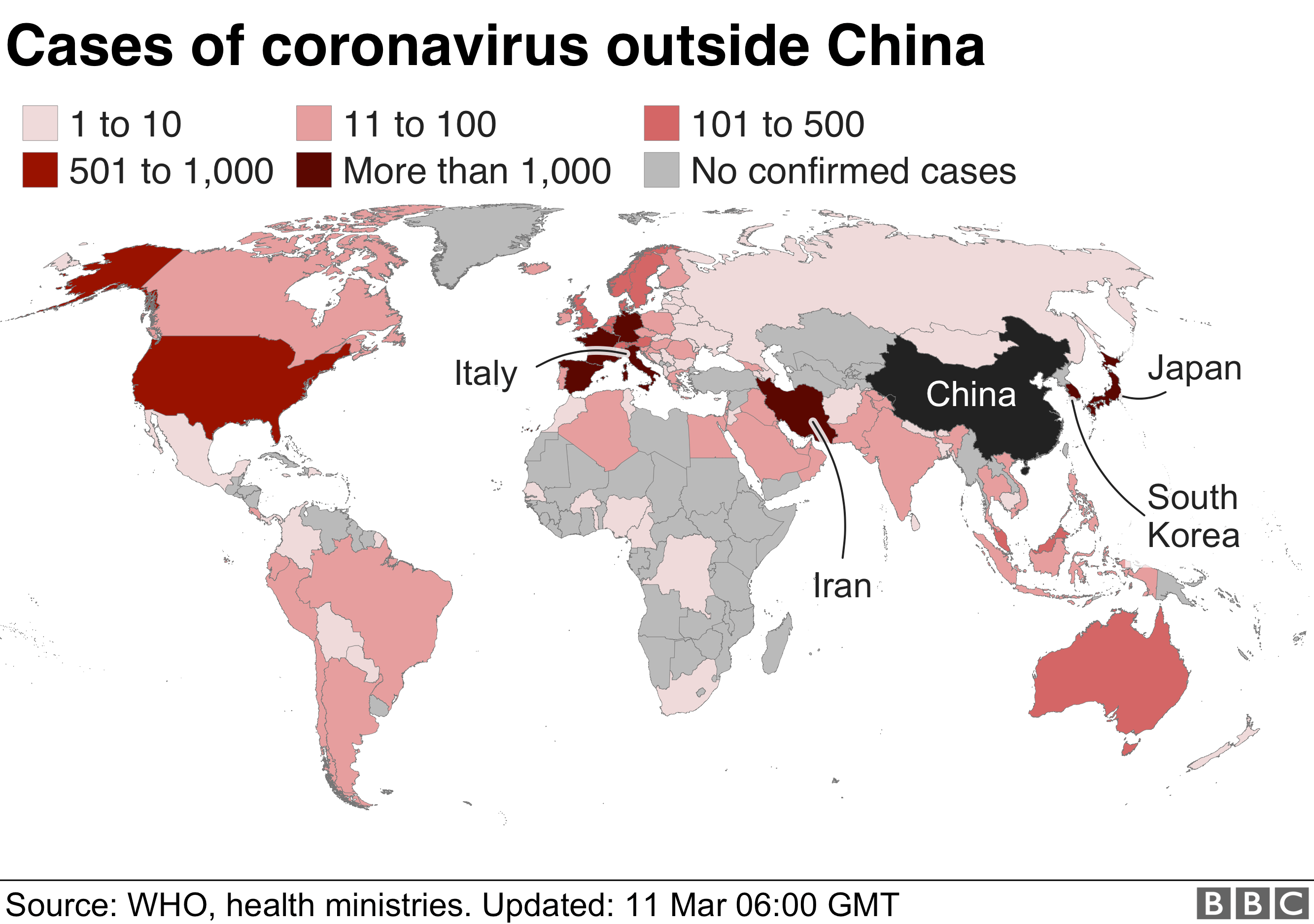A pandemic is basically a global epidemic -- an epidemic that spreads to more than one continent says Dan Epstein a spokesman for the Pan American Health. A virus circulates among animals not known to.
 Coronavirus What Is A Pandemic And Why Use The Term Now Bbc News
Coronavirus What Is A Pandemic And Why Use The Term Now Bbc News
We start with the suspected origin of the virus at the Huanan Seafood Market and end in the uncertain present.

What makes it a pandemic. The Centers for Disease Control and Prevention defines a pandemic as one that has spread to several countries or continents usually affecting a large number of people. It is a word that if misused can cause unreasonable fear or unjustified acceptance that the fight is over leading to. A pandemic is when an epidemic spreads between countries says David Jones MD PhD a professor of the culture of medicine at Harvard University.
Pandemic is not a word to use lightly or carelessly he said. A pandemic occurs when theres a belief that the whole worlds population will likely be exposed to this infection The deadly outbreak of a novel coronavirus has turned a spotlight on that. An influenza pandemic occurs when a new influenza virus emerges and spreads around the world and most people do not have immunity.
Most virus pandemics have been caused by influenza flu viruses. Viral respiratory diseases such as those caused by a new influenza virus or the coronavirus COVID-19 are the most likely to turn into a pandemic. Flu viruses can change from season to season and while health professionals are pretty good at predicting how the virus will.
While a pandemic may be characterized as a type of epidemic you would not say that an epidemic is a type of pandemic. A PANDEMIC is an epidemic thats spread over multiple countries or continents. While it usually refers to infectious diseases such as plague or influenza it is often used to refer to other health conditions including cancer obesity and even addiction.
Anmoldeep Singh 22 Elton Tran 22. Health experts and scientists agree that it means a surge in illness over a large area. An epidemic is an often-sharp increase in the number of cases of a disease either a known disease or a novel one compared with what would normally be expected in a particular population in a given part of the world according to the Centers for Disease Control and Prevention.
A pandemic is defined as the worldwide spread of a new disease When a new disease first emerges most of us lack the natural immunity to fight it off. Viruses that have caused past pandemics typically originated from animal influenza viruses. The most notable example of a global pandemic was the 1918 Spanish influenza which infected around 500 million people worldwide or a third of.
A pandemic is not the same as an epidemic. ENDEMIC is something that belongs to a particular people or country. AN OUTBREAK is a greater-than-anticipated increase in the number of endemic cases.
It can also be a single case in a new area. A pandemic is the worldwide spread of a new disease. In an epidemic many more cases of a health condition occur than would normally.
Pandemics are states of disease that sharply increase in populations around the world with infections taking place more or less simultaneously. At the time the WHO described six phases in the development of a pandemic. But theres some dispute about other ways to.
A pandemic is the spread of a new disease around the world. An epidemic is an increase often sudden in the number of cases of a disease above what is normally expected in that population in that area while a pandemic is an epidemic that has. Our project is a visual timeline of key moments illustrating the emergence and progression of the COVID-19 pandemic.
A pandemic as the worldwide spread of a new disease. What is a pandemic. What is a pandemic.
A pandemic is a type of epidemic one with greater range and coverage an outbreak of a disease that occurs over a wide geographic area and affects an exceptionally high proportion of the population. The severity of illnesses is. What Makes a Pandemic.
A pandemic is the worldwide spread of a new disease.